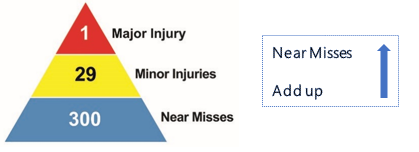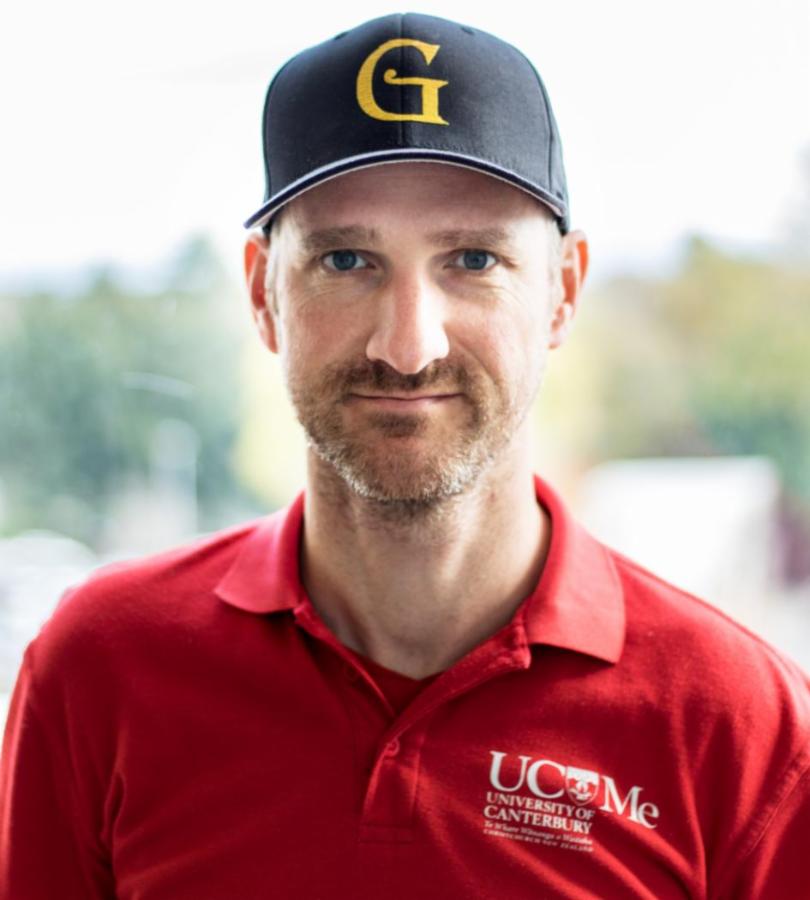Emergency Contacts
- UC SECURITY 92111 or 0800 823 637
- NZ Emergency Services (Fire/Police/Ambulance) 111
- Non-Emergency Security 92888
- Defibrillator Locations – UC campus Map
UC Emergency Procedures – Know what to do before and during an emergency
Inductions
All new and current staff, researchers and postgraduate students are required to undertake the School of Earth and Environment’s Health & Safety induction process and quiz. This general induction is available under the H&S Induction tab below. There are two options – one is a video and the other is a PDF to review. Reviewing one or the other and then answering the quiz will complete the induction process.
Any students, staff, visitors and contractors that plan to use or gain access to any of the School of Earth & Environment’s Laboratories/Facilities will have to be officially inducted by the Laboratory Manager in charge of that area.

SEESHAW – School of Earth & Environment Safety Health & Wellbeing committee. This committee was setup to bring together UC students, staff and management in the development and management of health, safety and wellbeing within our School. SEESHAW enables the School and its worker representatives to meet regularly and work collectively to improve our School’s health, safety and wellbeing.
SEESHAW Members - Rob Spiers (Chair), Sacha Baldwin, Chris Grimshaw, Matt Cockcroft, Suellen Knopick, John Revell, Student members (rotating).
Induction process
Review the Induction PowerPoint and complete this quiz to complete your induction.
All new staff, postgraduate students and visitors to Earth & Environment, must complete a formal induction process before other formalities and access to other privileges (e.g. key, computing, library) will be initiated. This induction ‘into the building’ will be completed by either the relevant academic host, the Safety Officer Matt Cockcroft (114 Ernest Rutherford), or Technical Service Manager Rob Spiers (109A Ernest Rutherford).
Short term visitors (up to 2 weeks) will be escorted to the SEE reception BT201 by their host where they will sign in and read an A4 sheet with Health & Safety information including emergency numbers, emergency evacuation procedures, H&S contacts etc. Visitors must also to remember to sign out in the same place.
Access to research facilities in Earth & Environment will not be granted until an additional specific induction into that facility is completed with the respective Laboratory Manager.
We encourage all our staff/students and visitors to actively participate in and contribute to the goals stated in our Health and Safety manual and Health and Safety Plan (see. ‘Safety’ on the ‘K’-drive). Get better at what we do is our aim, your contribution to achieving that end will be appreciated.
Incident or Near Miss
Reporting an Incident or Near Miss:
- Why?
- Incident reporting provides a process in which the situation can be corrected in order to prevent similar incidents from occurring in the future.
- Documenting all incidents allows UC to track patterns, realise trends, and discover anomalies.
- Incident reporting is a key habit that creates a stronger safety culture.
- Recording work related incidents is a legal requirement.

- When?
- All incidents, near-misses and injuries should be reported immediately.
- The Student/Staff member should not have to make a guess as to whether “their issue or incident” is worthy of an incident report. When in doubt, file an incident report.
- How?
- Please report all Incidents and Near misses directly to your School Safety Officer, Manager or Supervisor.
- UC - Reporting an Incident – Helpful guides covering the process
SEEs - Field Activities:
University of Canterbury offers opportunity to engage in learning and research in a wide variety of stimulating environments including visits to field stations, aquatic, alpine, and forest environments, farms, quarries, mines, factories, health facilities and many other cultural and business environments. Anyone heading into the field is requested to complete the field activity training, linked below.
Protocol: University Field Activities sets out the procedures to manage the risks and hazards associated with learning and research away from the main campus environment.
The Field Activity Matrix determines what documentation is required to meet the health and safety requirements for the field activity. Any such activity must be planned and managed in a way that risk is minimised and that in the event of an emergency, appropriate and responses are initiated as quickly as possible. To that end, UC have a set of field-work related documents, the completion of which is mandatory.
SEEs Documentation Procedure:
The person who is organising and running the field trip is the ‘Field Activity Leader’ and is responsible for ensuring the correct H&S Hazard Management process is followed. The Field Activity Leader is responsible for completing the appropriate H&S documentation:
1. Complete a Field Activity Plan March 2025 (FAP) if required (refer to Field Activity Matrix above), including the necessary supporting documents:
SEE Field Activity Leader Health Declaration and Consent
Field Activity Participation Declaration & Consent
SEE Checklist; Field Activity Briefing
2. This documentation is then submitted/emailed to: earthandenvironmentfieldactivity@canterbury.ac.nz for feedback, sign-off and approval. It is important that this happens well in advance of the proposed field activity dates.
3. The Field Activity Leader may nominate another suitably qualified person to assist in both the planning and running of the trip. Such a person becomes the ‘Deputy Activity Leader’. Both the FIELD ACTIVITY LEADER and the DEPUTY ACTIVITY LEADER will have to complete Activity Leader: Health Declaration and Consent. Once completed these are also submitted/emailed to: earthandenvironmentfieldactivity@canterbury.ac.nz
4. The remaining members of the field party are PARTICIPANTS. The Field Activity Leader(s) must collect relevant personal detail from each participant and this data will be used to inform both the logistics of the trip and inevitable ‘What If’ scenarios. Use the Field Trip Health & safety Registration and Catering Payments web form (tab below). This information is stored on a secure server and collated by Sacha Baldwin and will be made available to the Field Activity Leader(s) on request.
5. "The detail presented on the consent forms and undergraduate/400 medical/dietary notifications lists is both personal and private. The Field Activity Leader(s) are legally bound to respect the sensitive nature of that information, that said, transference of that detail occurs on a ‘need-to-know’ basis (e.g. cooks must be made aware of special dietary requirements, demonstrators need to know about medications/allergies amongst members of their group)."
6. With respect to the ‘Field Activity Details’ on Page 1 of the FAP, it is important to realise that information may be pivotal with respect to an appropriate and rapid response should assistance from external emergency services be required.
a) Provide a daily schedule of activities; start time, where, who is involved and finish time. If the party is to be broken into groups we need to know how they will be deployed, how will they communicate (with the Field Activity Leader(s) especially)?
b) Where multiple vehicles are involved, where will they be located? If they are to follow different routes arriving at different destinations to begin the field work, that should also be documented.
c) A detailed map is very useful and Grid References in the ‘Map Reference’ cell is also advised.
d) It is important that the Field Activity Leader(s) establish and adhere to a system of communication between themselves and the School. Talk to Matt/Cathy/Sarah/Justin in the first instance for out of cell coverage communication options. We need to know when the activities have ended for the day when there is a change of plan and, when there is a problem. Clearly, the ease with which those messages can be sent/received is very much determined by the terrain/location and there are a number of options available to ensure coverage is maximised.
7. For those filling out a FAP for the first time, it is important that the first draft of the plan is submitted to your Safety Officer earthandenvironmentfieldactivity@canterbury.ac.nz some days before the field trip start date. The SO/HoS will only sign the document off when he/she is satisfied that the appropriate information is provided and that the risk assessment/management part of the document has been dealt with fully and appropriately. Once that sign-off has the occurred, the document becomes ‘ACTIVE’ and the fieldwork may commence.
- Students please see the the University Travel Policy
- Staff please see the Travel Intranet Page
Please use this as a guide for booking International and Domestic travel in the School of Earth and Environment.
International Travel
Email the following information to Nina Vargoczky nina.vargoczky@canterbury.ac.nz, and cc seetravel@canterbury.ac.nz
- Purpose of Travel
- Funding - Codes. If it not your fund, the fund owner will need to provide email approval.
- Estimated Travel Cost.
- Travel Dates
- Number of Leisure Days
- A general description of what you will need booked. Flights, Car, Accommodation. and Locations
- All University international travel will be economy class
The SEEs travel booker (Nina Vargoczky), will complete the . Then a travel consultant, from our Contracted Travel Management Company, will contact you to arrange details. If you are travelling in a group, you can nominate one person to make arrangements on behalf of the group with the consultant.
Travel Insurance for International Travel
Please refer to the Travel Insurance Intranet page (staff only) for information about how to arrange travel insurance, safe travel practices, travel insurance FAQ’s and information about how to submit a travel insurance claim. If you have any questions, please contact travelinsurance@canterbury.ac.nz.
Domestic Travel
Send your travel request details to nina.vargoczky@canterbury.ac.nz, cc seetravel@canterbury.ac.nz
Include the following information as needed:
Funding - Codes. If it is not your fund, the fund owner will need to provide email approval.
Purpose of Travel - If you are doing field work, please also complete a Field Activity Plan. See Planning Field Work
Travel Profile - Unless you have booked travel since April 2022, or have a staff travel profile, please assume you need to supply your travel profile details:
Title (Mr, Miss, Dr, etc.)
First Name
Middle Name
Last Name
Preferred Name (If different from your first name)
Email
Mobile Number
Air New Zealand Airpoints Number (if you have one)
Staff Number (if you have one)
Flight Details:
- Please check the AirNZ Website and choose your flights.
- Copy and Paste (or write) your chosen flights into your email,
- The lowest cost reasonable fare of the day ("best fare of the day") airfares should be selected in all instances
- The cost to change a 'seat' or 'seat + bag' fare is $50 + any fare difference. The fare change cost of $50 is only applied once to change a return fare itinerary. The new flights must be within a year of the initial booking. Please see Air NZ Fare Type information below or see https://www.airnewzealand.co.nz/fare-rules for more information on fare rules.
Rental Car
- Include the type of vehicle required.
- Specify the pick up times and locations (if they differ from your airport arrival/departure times).
- The Contracted Travel Management Company will provide available options with their preferred suppliers.
Accommodation
- The Contracted Travel Management Company can recommend their preferred accommodation for your location.
- Provide Check In Date and Check Out Date
AirBnB
- Choose your AirBnB and send the link. Orbit can't guarantee the quality of AirBnB Accommodation.
- Provide an email address associated with your airbnb account. An email will be sent to this email to request permission to book on your behalf (please check this email address and accept the request).
- The AirBnB host may decline the booking even when it appears to be available, therefore it can be helpful to send a link for a second option.
- If people in a group are staying different numbers of nights, please specify this as it can reduce your price.
Bus
- Consider taking the bus instead of flying. Please specify your drop-off and pick-up locations.
Wellbeing is a challenging concept to define, but it is often said to be connected with feeling satisfied and happy, having one's needs met, being free to pursue goals, and experiencing good living conditions. Putting it really simply, wellbeing can be thought of as 'feeling good and functioning well.'
Take charge of your wellbeing while studying and working, there are heaps of services and facilities you can access on campus – UC Oranga Wellbeing Guide
SEEs Vehicle use
The School of Earth & Environment has some vehicles (vans and 4-wheel drive utes) that may be available for field work. Postgraduates undertaking thesis-related field work can expect to pay mileage charges. It is important that you discuss your needs with your supervisor and relevant technical staff.
- Bookings must made in advance; you will be expected to read and sign-off the UC Vehicle Use and Fleet Management Policy. You will also need to present a full NZ Drivers Licence or, an International Driver’s Licence.
- Additionally a number of different vehicle types are also available from the University of Canterbury Vehicle Pool.
- Anyone planning on using a UC vehicle “off-road” will be required to be competent in the use of and have to have completed a recognised off-road driving course before you will be given approval.
[Off-Road examples = farm tracks, beaches, through water or anywhere that is not a public road]
SEEs organises such training courses please communicate with Sacha Baldwin sacha.baldwin@canterbury.ac.nz
University Fleet vehicle user's guide
All users of University fleet vehicles must agree to comply with the Terms and Conditions for Use of University Vehicles before being allowed to book a vehicle
- All vehicle users must be employed by, or enrolled as a student of, the University of Canterbury.
- All vehicle users must have a full current driver licence of the appropriate class for the vehicle being hired and this licence must be available for inspection. Only driver licences that are valid in New Zealand will be approved.
- Fleet pool vehicles are provided for the purpose of travel on University business only. Mileage charges for use of these vehicles will be incurred. Private use is not permitted unless approved in advance by the Executive Director, People, Culture and Campus
- Fleet pool vehicles are available 24/7, once a booking is made the keys can be collected from the UC Security Office at 114 Ilam road, the driver must present their current valid driver’s licence and valid Canterbury Card when collecting the pool vehicle
Field Trip Participation Information
Welcome SEE field trip participants! Much has changed over the last few years regarding field trip organisation, forms, payments, equipment etc. Please read this carefully, hopefully it will answer your questions regarding the things you need to complete before embarking on a class field trip.
Your prompt completion of the Health and Safety Field Trip Participant Form is necessary and appreciated. Thank you.
Information submitted on this form is held in a secure setting and deleted at the conclusion of each UC calendar year.
Health & Safety Field Trip Participant Form
Link to Form SEE Field Trip Health & Safety Form (qualtrics.com)
This data is securely held by the University of Canterbury and accessed by your trip leader before departure.
WHEN TO FILL THIS IN:
- Fill in the form at the earliest possible date. Your prompt response is required.
- You are only required to fill this in ONCE for the year for ALL your SEE trips unless health or emergency details change.
- Make sure you tick all the courses which have FIELD TRIPS that you intend to enrol in. It doesn’t matter if you decide to withdraw.
Familiarise yourself with the following before completing the form and submitting:
- SEE field trip behaviour policy
Catering Payments
Some SEE multi-day field trips charge a minimal fee to cover the costs of catering for three meals a day.
- Please remember to bring your own LUNCH on the first day of the field trip.
HOW TO PAY:
- Payment is made via the UC Science Shop
- Please contact sacha.baldwin@canterbury.ac.nz or your course co-ordinator, prior to the trip, if you feel you have a valid reason for not participating in the organised catering.
WHEN TO PAY:
- Payment must be completed as soon as possible, prior to your field trip.
- Non-payment after participating in SEE-catered meals on a field trip may result in marks being withheld and graduation being delayed.
UC policy states that: “Credit may be withheld from any student who fails to pay any fee, fine or cost owed to the University or to a Department/School, or who fails to return University property.”
DIETARY REQUIREMENTS:
- Special diet requirements are catered for.
- Please enter your dietary requirements in the Health & Safety Field Trip Participant Form.
- If you wish to discuss further please email sacha.baldwin@canterbury.ac.nz to make a time to meet. We try to accommodate as best we can so the more information we have the better.
Equipment Purchase
HOW TO PAY:
Any equipment required or recommended for your field trip or labs can purchased online at the UC Science Shop.
HOW TO PICK UP:
Pickup location: Ernest Rutherford, Room 109 and email cathy.higgins@canterbury.ac.nz and sarah.pope@canterbury.ac.nz to arrange a time to pick-up.
WHAT EQUIPMENT DO YOU NEED?
- This information is available on the Science Shop site. Optional, Recommended and Required equipment is listed under each course.
- You may also wish to talk to your trip leader or course co-ordinator if you have any questions.
Te Kura Aronukurangi
SCHOOL OF EARTH AND ENVIRONMENT University of Canterbury
ADDITIONAL POLICY - BEHAVIOUR DURING FIELD TRIPS
A very high standard of individual and group behaviour is required on all SEE field trips. All students must comply with University Discipline Regulations (UC Calendar) and comply with all instructions given by University staff or policies specific to field activities. Some of these instructions and regulations relate to the health and safety of individuals and the group as a whole. Other instructions relate to the care of University and private property, as well as the reputation of the University. It is important to recognise that all students on field trips are seen as representing the University in public.
It is the personal responsibility of each student to manage their own behaviour. Any student disobeying instructions, breaching regulations or requirements with respect to academic programme related activities, or behaving in a manner which staff members regard as unacceptable may be penalised. In extreme circumstances, e.g. involving safety, a student may be dismissed from the field trip and removed from the course by the field trip leader or course co-ordinator who has delegated authority from the Head of School. All serious breaches of University Regulations and Policies will be reported to the University Proctor.
It is the professional responsibility of staff to ensure the safety of all participants on field trips. Alcohol or other non-prescription drugs are strictly prohibited at the field-station and field accommodation for undergraduate trips. This is a health and safety issue. A drunk/intoxicated or drugged student is potentially unsafe both to themselves and to others. A number of incidents have occurred on previous residential field trips, involving excessive consumption of alcohol resulting variously in serious misbehaviour, a breach of the University Discipline Policies, detrimental effect on the University’s reputation and/or damage to property. Any student found with alcohol at the field station or to be affected by alcohol or other non-prescription drugs will be dealt with severely by the trip leader and/or course co-ordinator; the penalty for this offence will be up to and including dismissal from the trip.
At postgraduate level, the decision on whether alcohol is allowed at the field accommodation is at the discretion of the field trip leader. If alcohol is permitted, both staff and students are responsible for meeting the general university policy on alcohol. This involves only responsible and moderate use of alcohol. The same penalties that apply for undergraduate/dry postgraduate trips apply to individuals on trips where alcohol is permitted, if they break the policy.
April 2021
Head of School
Te Kura Aronukurangi|School of Earth and Environment
Organising a student field trip
School of Earth & Environment/Te Kura Aronukurangi
For a summary of this process please see the Flow Chart
Field trip logistics email: sacha.baldwin@canterbury.ac.nz
Year before trip
Date:
- Choose a date – for advance booking of field stations etc
- Communicate to Field Trip logistics, also any changes.
Accommodation:
- Email regarding which field station/ accommodation you wish to book for the next year. If you book it yourself please still email to let us know.
Year of field trip
Field Trip Requirements form:
- Field Trip Requirements form
- Fill in as close to the beginning of each semester as possible for ALL field trips or teaching workshops, day and residential.
Date of trip:
- Put information on the course LEARN site with dates and any options before, or as, the semester begins.
- Set up a site for students to allocate to different streams if needed.
- Communicate any changes to Field trip logistics as soon as they are decided.
Online H&S forms:
- Put up information regarding the field trip participant form on the front page of LEARN for each relevant course. There will be a DUE DATE for the form to be submitted set at the end of the first fortnight of semester.
- First lecture or lab – lecturer/tutor to introduce the students to the online Field Trip Participant Form.
- Give 5 minutes during the lecture to fill in and submit. Alternatively on LEARN there will be a due date.
- TRIP LEADERS and demonstrators must also fill this in by the due date.
- Click here for form.
Staffing:
- Let Field trip logistics know ASAP which staff are attending and who you have hired to demonstrate on the trip.
- If your staff/demonstrators are driving minivans, be sure they have a full driver’s licence and have completed the SEE- arranged driver assessment (contact Sacha to arrange).
- Forward their names to Sacha Baldwin for First Aid training and epipen management sacha.baldwin@canterbury.ac.nz
Visitors:
- If you are hosting a visitor or extra people on the trip let Field Trip Logistics know and pass on email details. Bums on seats can be a crucial number for vehicle booking.
Student numbers:
- Field trip logistics will download class lists. If there are any changes or if individuals cannot make it, let the Field trip logistics team know AS SOON AS YOU hear.
Vehicles:
- These will be booked by the Field Trip logistics team.
Equipment:
- If you require a lot of equipment attach a separate list to your field trip requirements form.
Field Activity Plan (FAP):
- Fill in at least 3 weeks before trip for approval.
- Go to the H&S Planning for Field Work tab near the top of this page. Follow the proceedures detailed and find the link to the Field Acitivy Plan link.





